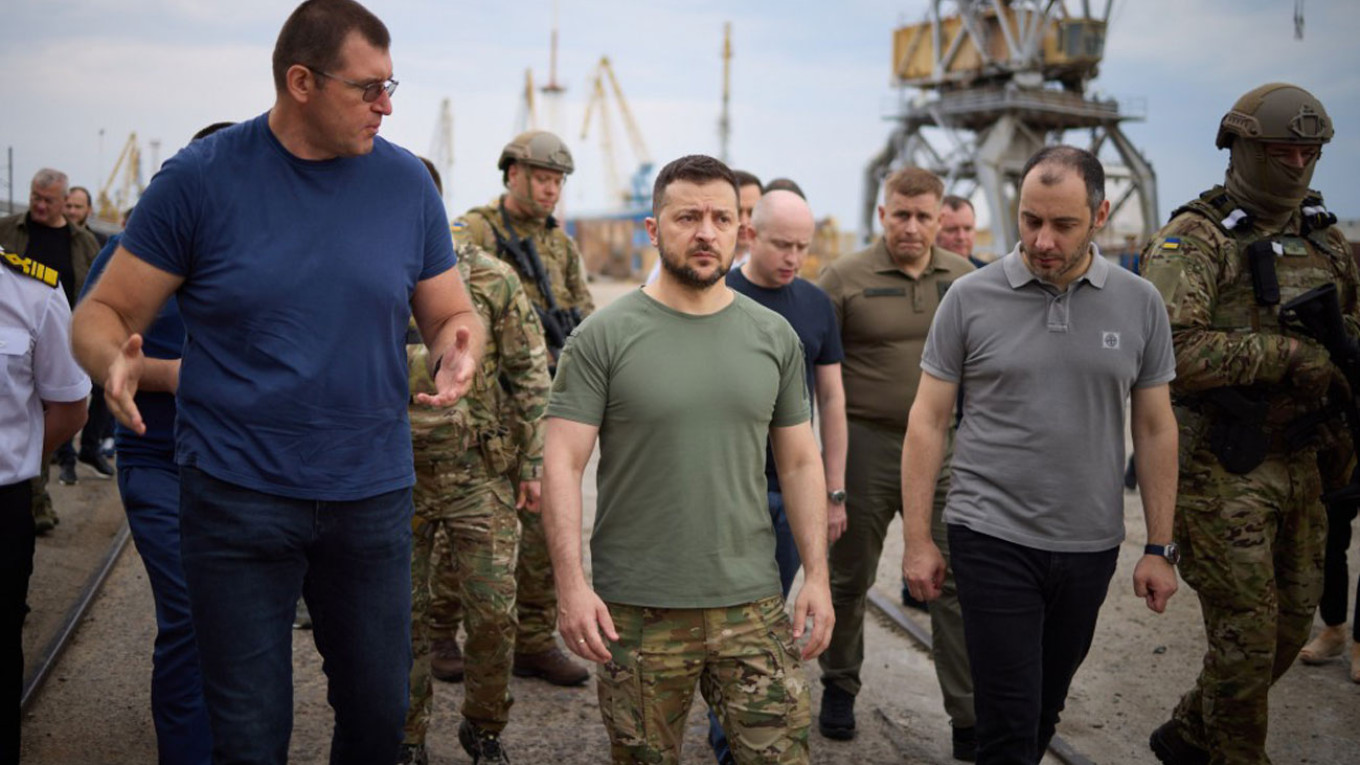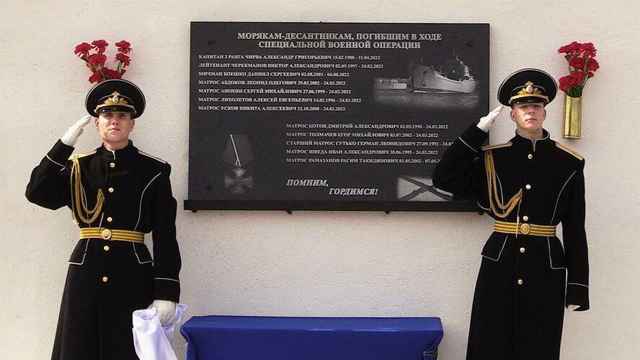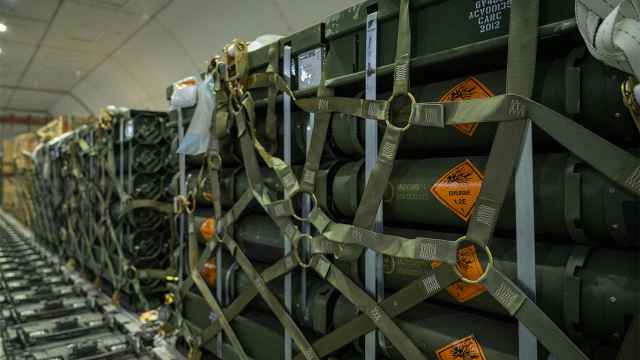President Volodymyr Zelensky has visited a port in southern Ukraine to oversee grain being loaded for export onto a Turkish ship, the presidency said on Friday, following a deal with Russia brokered by the UN and Turkey.
"The first vessel, the first ship is being loaded since the beginning of the war. This is a Turkish vessel," Zelensky said, according to a statement from the presidency.
Video footage from the Chornomorsk port released by the presidency showed him in front of a ship called Polarnet.
The statement said exports could start in "the coming days" under the plan aimed at getting millions of tons of Ukrainian grain stranded by Russia's naval blockade to world markets.
"Our side is fully prepared. We sent all the signals to our partners — the UN and Turkey, and our military guarantees the security situation.
"The minister of infrastructure is in direct contact with the Turkish side and the UN. We are waiting for a signal from them that we can start," Zelensky was quoted as saying.
The presidency said the export of grain will begin with several ships that were already loaded when Russia invaded in February but unable to set sail due to the start of the war.
The deal to lift Russia's blockade — the first significant accord involving the two warring sides since the assault began — is aimed at helping mitigate a global food crisis that has seen prices soar in some of the world's poorest nations.
Ukraine — one of the world's top grain exporters before the war — says it aims to export some 20 million tons of produce, worth some $10 billion, under the plan.
"It is important for us that Ukraine remains the guarantor of global food security," Zelensky, who was escorted by ambassador from the G7 nations, said in the statement.
A Message from The Moscow Times:
Dear readers,
We are facing unprecedented challenges. Russia's Prosecutor General's Office has designated The Moscow Times as an "undesirable" organization, criminalizing our work and putting our staff at risk of prosecution. This follows our earlier unjust labeling as a "foreign agent."
These actions are direct attempts to silence independent journalism in Russia. The authorities claim our work "discredits the decisions of the Russian leadership." We see things differently: we strive to provide accurate, unbiased reporting on Russia.
We, the journalists of The Moscow Times, refuse to be silenced. But to continue our work, we need your help.
Your support, no matter how small, makes a world of difference. If you can, please support us monthly starting from just $2. It's quick to set up, and every contribution makes a significant impact.
By supporting The Moscow Times, you're defending open, independent journalism in the face of repression. Thank you for standing with us.
Remind me later.






